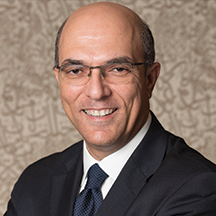The year ahead: a view from the Nile
In 2023, what lies ahead for Egypt, the Middle East and North Africa, and the wider world? This column, first published by The NileView, suggests that this year is likely to be a blend of volatility, uncertainty, complexity and ambiguity.
The way forward for Egypt
As Egypt prepares to host the 27th Climate Change Conference in Sharm El-Sheikh in November, there may be an opportunity to restart the post-pandemic economic recovery. This column, first published by The NileView, is firmly optimistic about the country’s potential and prospects, with the author opening: ‘I am not an economist, but here is some food for thought on the way forward for Egypt.’


